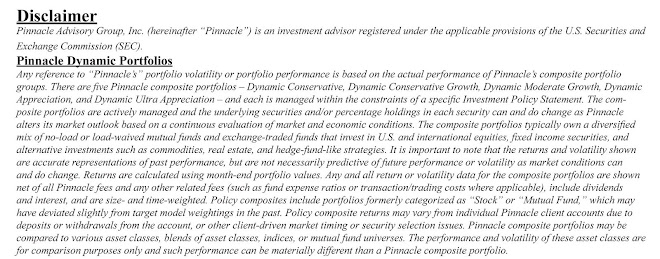In a recent blog I wrote about the breakout in the Japanese Yen versus the US Dollar, (http://echoesfromthepit.blogspot.com/2010/04/keep-eye-on-yen.html), I described how a lower Yen may be a catalyst for a breakout in Japanese stocks. The primary reason a lower yen may help the Japanese equity market is that the Japanese economy still has a heavy reliance on exports. A lower Yen should mean an increase in exports which leads to higher earnings. It would also help to combat the deflationary conditions that have existed in Japan for decades.
In Pinnacle portfolios we own limited Japanese exposure at this time, but what we do own is a security that is not hedged against a falling yen. An un-hedged security has served us well for some time, but now it appears the tide may be shifting.
Today I embarked on a search for a security that would give us exposure to Japanese stocks, but also protect assets from a falling yen. After calling the managers of our current holding and running multiple filters on other securities in the Japanese equity space, there appears two ways we could eliminate the currency exposure we currently have.
One would be to leave the un-hedged fund (SPARX) alone and buy a security that makes money if the yen were to depreciate. There is a security available that bets against the yen (YCS), but it has numerous drawbacks. The first drawback is that the Exchange Traded Fund is leveraged, which increases the risk and the tracking error of the instrument over time. The second is that this approach requires more of a capital commitment since we would have to purchase both SPARX and YCS to get the net exposure desired. The third is the construction of the ETF makes it somewhat tax inefficient.
Our other option is the exchange traded fund DXJ (Wisdomtree Japan Hedged Equity), and it appears to be a much more efficient way to gain the desired result. DXJ owns Japanese stocks and hedges out currency exposure, and does this at a cheaper expense than what we currently own.
Tomorrow we’ll meet and talk about what we own in the Japanese space, and whether we should make a switch to the hedged security. We may or may not decide to pursue this particular investment after debating the pros and cons of making a switch at this time. Regardless, bottom up security construction is considered an important part of what we do, and meetings on security construction are a normal part of our process.

